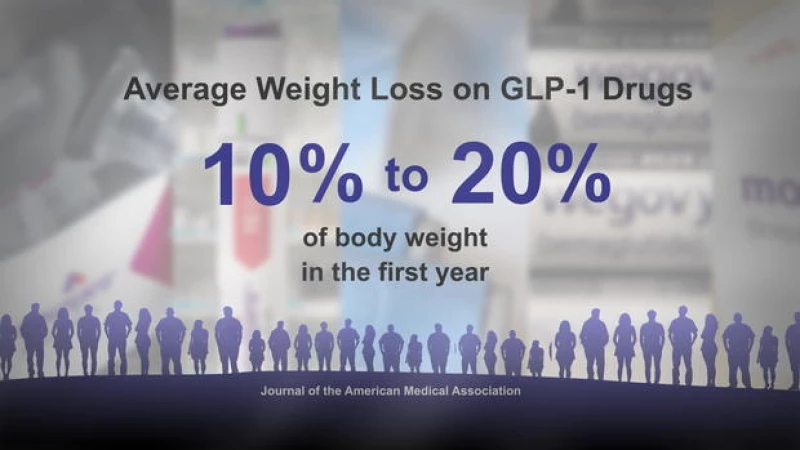Life-changing Transformation: Overcoming Obesity with Ozempic
LaQuita Clark, a 44-year-old nurse from Nashville, Tennessee, has endured the pain of being overweight and facing ridicule since her middle school days. The hurtful comments and mockery from her peers left a lasting impact on her self-esteem.
Throughout the years, Clark tried various methods to shed the extra pounds, including fad diets and kickboxing. However, none of these approaches yielded the desired results. She found it difficult to break free from her emotional attachment to food, which provided her with comfort during challenging times.
Everything changed for Clark in June when she received a prediabetic diagnosis and was prescribed Ozempic. This medication, requiring only one small injection per week, not only improved her overall health but also brought about a remarkable transformation.
At her heaviest, Clark weighed 250 pounds. Thanks to the effectiveness of Ozempic, she has successfully reached a weight of 164 pounds, a significant milestone that has truly changed her life.
GLP-1 Drugs: A Breakthrough in Weight Loss and Diabetes Treatment
Ozempic and Mounjaro (used for diabetes), and Wegovy and Zepbound (approved for weight loss), are GLP-1 drugs. According to Dr. Rekha Kumar, the GLP-1 class of medicines signals fullness to the brain and regulates blood sugar. And those taking the drug will know when to stop eating. "It's really amazing to see it when it works," she said. "And people will say that it's the first time they felt normal, or it's the first time they felt full."
Kumar is the chief medical officer at Found, the weight loss app that LaQuita Clark uses to receive her care – and to get her Ozempic.
An obesity specialist, Kumar helped oversee early trials of GLP-1 medications. The results? On average, people lose 10 to 20 percent of their body weight in the first year. For many of the roughly 74 percent of Americans who are overweight or obese, that is almost unimaginable.
"This is a scientific breakthrough," Kumar said, "not just because of weight control, but because of cardiovascular risk reduction, [and] treating diabetes. People are actually getting healthier, and that's the point of medicine. It isn't just to be thinner."
But clearly being thinner is what's causing all the buzz. Kumar said, "It's all over social media. People are documenting their journeys, they're injecting on Instagram, showing other people how to do it."
And that concerns her. "We're seeing people want to get ahold of these medicines that don't need them at all – people trying to fit into dresses, and wanting to lose the vanity weight," she said. "And that's not really what these were made for."
People are going to great lengths to obtain GLP-1 drugs, even resorting to unconventional sources. One person reported receiving an email from their hair salon offering a blow dry and a dose of Ozempic, a popular GLP-1 drug. It seems that these drugs are in high demand.

Investors are also taking notice of the potential of GLP-1 drugs. Simeon Siegel, a senior analyst at BMO Capital Markets, believes that these drugs could be a goldmine for investors, comparing their potential impact to that of the iPhone. He predicts that if these drugs become widely accessible, it could have a significant effect on various industries.
For instance, with more people losing weight, there could be a boom in athleisure wear and gym memberships. Surprisingly, Siegel doesn't believe that gyms will suffer if a successful weight-loss drug is introduced. He argues that when someone who hasn't been fit becomes fit, they are more likely to make lifestyle changes to maintain their newfound fitness, including continuing their gym membership.
Furthermore, analysts speculate that airlines could benefit from lighter passengers, potentially leading to lower costs. However, all of these potential outcomes rely on the widespread availability of these drugs, which is currently uncertain.
Access and Affordability Remain the Biggest Challenges for Medicines
According to Dr. Kumar, one of the major issues with certain medicines is the lack of access. Many people are forced to pay out of pocket, sometimes as much as $1,200 a month. Currently, only 30% of individuals who could potentially benefit from these medications have coverage. This low rate is concerning, especially considering that around 70% of the population may qualify for them.
Uncertainty Surrounds Long-Term Effects and Usage of GLP-1s
Aside from the cost, another issue with GLP-1 drugs is the lack of knowledge regarding their long-term effects. Dr. Kumar highlights the concern that there is only 20 years of data available, as opposed to a century's worth. Dr. Mara Gordon, an assistant professor at Cooper Medical School, raises another important question: how long would someone need to continue taking a GLP-1 drug for weight loss? Research is currently underway to understand what happens when individuals stop taking these medications, as there is a belief that weight regain may occur.
Medications and the Prevalence of Fat-Phobia
Dr. Gordon, who identifies as a "body-positive doctor," expresses her concern about the societal prejudice against individuals based on their body size. She believes that these medications contribute to a culture that discriminates against people who are larger in size. According to her, this issue goes beyond the medication itself and raises serious moral questions about our society.
According to LaQuita Clark, she only discusses her patients' weight if they express a desire to address it. However, she has no reservations about prescribing medications like Ozempic to patients whose health is at risk. She believes that drugs such as Ozempic can significantly benefit individuals with diabetes by improving their blood sugar levels and protecting their heart.
While LaQuita Clark is content with her current body image, she emphasizes that feeling better internally is her priority. If taking medication is necessary to achieve that, she is willing to do so. Clark believes that society places too much emphasis on outward appearances and not enough on overall health. Her main goal is to maintain good health and be present in the lives of her children and grandchildren for many years to come, regardless of societal expectations.
For more information, visit:
- Ozempic
- Mounjaro
- Wegovy
- Zepbound
- Weight loss app Found
- Mara Gordon, MD, assistant professor of family medicine, Cooper Medical School of Rowan University, Camden, N.J.
- Simeon Siegel, retail & services analyst, BMO Capital Markets
Story produced by Amiel Weisfogel. Editor: Remington Korper.







